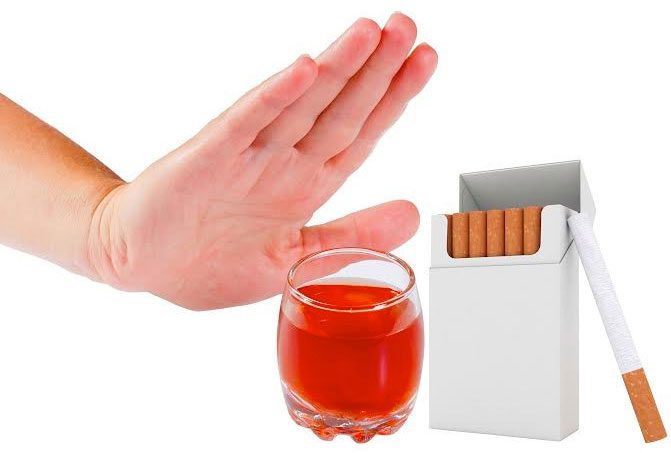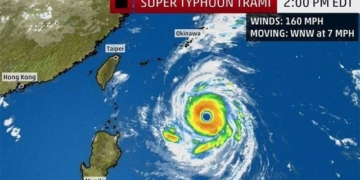Dengue patients often exhibit symptoms such as: loss of appetite, a bitter taste in the mouth,… Due to the weakened immune system and reduced resistance, patients must pay special attention to their nutritional intake. So, the question arises: what should dengue patients avoid and what should they eat to facilitate nutrient absorption and quick recovery?
Dengue Fever: Foods to Eat and Avoid
What is Dengue Fever?
Dengue fever is an acute infectious disease caused by the Dengue virus. The primary mode of transmission is through the bite of Aedes mosquitoes, which carry the virus from infected individuals to healthy ones. Mild dengue fever may result in high fever, rash, and muscle and joint pain, while severe dengue fever can lead to severe bleeding, sudden drops in blood pressure (shock), and even death.
Symptoms of Dengue Fever
- High fever, reaching up to 40 degrees Celsius;
- Severe headache;
- Pain behind the eyes;
- Joint and muscle pain;
- Nausea and vomiting;
- Rash.
Dengue rashes may appear on the body 3-4 days after the onset of fever and typically subside after 1-2 days. It is possible for rashes to reappear the following day.
What to Do and Eat When Having Dengue Fever?
Many people worry about what to do, what to eat, and how to treat dengue fever quickly to avoid potential complications that could be fatal. Below is a list of foods that dengue patients should and should not consume.
Foods to Avoid When Having Dengue Fever
1. Spicy and Hot Foods
The immune resistance of dengue patients is compromised, and energy is depleted significantly when sick. Spicy and hot foods such as ginger, chili, and mustard will increase body heat. This not only exacerbates the disease but also hinders the patient’s recovery.
2. High-Fat Foods

When suffering from dengue fever, avoid high-fat foods.
Patients should stay away from fried, oily, and grilled foods as they can cause symptoms like bloating and indigestion, slowing down recovery.
3. Dark-Colored Foods
Dengue patients are very prone to bleeding, so it’s advisable to avoid any foods that are red, brown, or black during the monitoring period, such as coffee, chocolate, cola, watermelon, etc. This precaution helps doctors easily identify any potential gastrointestinal bleeding during episodes of vomiting.
4. Eggs and High-Protein Foods
In addition to avoiding the above foods, dengue patients should also refrain from eating eggs. Chicken eggs are high in protein and produce a lot of heat after consumption. For those who are feverish, especially children, eating eggs can lead to an increase in body temperature that cannot dissipate, thus prolonging the fever.
Therefore, dengue patients should not consume eggs and other high-protein foods.
5. Sugary Foods
When having dengue fever, patients should avoid soft drinks, sodas, and should not use honey or other natural sugars. Consuming sugar will slow down white blood cells’ ability to combat bacteria, worsening the illness and prolonging recovery.
Foods to Eat When Having Dengue Fever
1. Water
According to the National Institute of Nutrition, dengue patients often experience high fever accompanied by dehydration, making it crucial to replenish fluids and electrolytes by drinking oral rehydration solutions. Therefore, patients should drink various fruit juices (such as orange, grapefruit, lemon, coconut water) as they contain many minerals and vitamin C to boost immunity and strengthen blood vessel walls, reducing the severity of the disease.
2. Light Porridge and Soup
Loss of appetite and a bitter taste in the mouth are common signs of fever, causing discomfort for patients, especially children. The best response to the question “What to do when having dengue fever?” is to provide patients with light porridge and soup for easier absorption and rich nutrients.
For children with dengue fever who are still breastfeeding, mothers should breastfeed more than usual to enhance natural immunity from breast milk. When feeding, children should have multiple small meals and drink plenty of fluids, avoiding binge eating.
During this time, mothers should supplement their children’s diet with protein-rich foods from eggs, meat, and dairy, as well as foods high in vitamin A and zinc found in beef, chicken, etc., to boost immunity against dengue fever.
3. Vegetable Juices
When suffering from dengue fever, patients should also add fresh vegetable juices like carrot, cucumber, and leafy greens to boost immunity and relieve pain due to their essential vitamins and minerals.

Vegetable juices are very beneficial for the treatment of dengue fever.
4. Feeding Children After Recovery
Another important point is what to eat after recovering from dengue fever. When the fever has subsided and the patient has recovered, parents should return to normal feeding and provide additional nutrition to make up for the nutrients lost during the illness, thus preventing future underweight or malnutrition issues.
Since the child’s appetite may have changed due to illness, parents need to be patient in preparing attractive dishes and prioritize foods rich in vitamin D, A, zinc, iron, minerals, and vitamin-rich fruits like oranges and tangerines.
Some Fruits That Dengue Patients Should Eat
- Pumpkin: Rich in vitamin A, it helps support platelet development and regulates proteins produced by body cells. Half a glass of fresh pumpkin juice with a tablespoon of honey can help increase platelet count. For effectiveness, it’s recommended to drink at least 2-3 glasses daily. This will help dengue patients recover faster. Additionally, pumpkin can be used to make soup for patients’ main meals.
- Papaya: Patients can eat ripe papaya directly or mash two pieces to drink. Consuming this juice every morning or evening can help reduce fatigue.
- Oranges and Grapefruits: Citrus fruits are rich in minerals and contain a lot of vitamin C, making them suitable for boosting immunity in dengue patients. Moreover, eating oranges instead of just drinking the juice allows patients to receive abundant fiber from the orange segments, which helps alleviate indigestion and nausea. This fruit is essential for dengue patients.
- Guava: Similar to oranges, guava is rich in vitamin C, which is very helpful for boosting immunity and increasing platelet counts.
- Melon: In addition to being high in water and minerals, melon is also very effective in cooling the body, making it very suitable for dengue patients.
Important Notes in Dengue Fever Treatment
Things to Do When Having Dengue Fever
1. Prevent Mosquito Contact with Skin
The main cause of dengue fever is the virus transmitted by mosquitoes; therefore, it is essential to prevent mosquitoes from coming into contact with the skin, as they may bite and transmit additional virus, worsening the patient’s condition and posing a risk of infection to others.
Sleep under a mosquito net even during the day. Avoid letting children play in dark and damp places, have them wear long-sleeved clothing, and use mosquito repellent creams or oils.
2. Eliminate Mosquitoes in Living Areas
- Use mosquito repellent spray, larvicides, and electric mosquito rackets;
- Seal water containers to prevent mosquitoes from laying eggs, and clear any items holding water around the house such as empty cans and bottles;
- Clean up trash in vacant lots;
- Enhance drainage to eliminate stagnant rainwater, reducing mosquito breeding;
- Keep the living environment tidy and clean, avoiding hanging too many clothes to prevent mosquito hiding places.
Things to Avoid When Having Dengue Fever
1. Avoid Cold Air and Cold Baths
Patients should rest at home, avoid cold air, and cold baths; they should only clean their bodies with warm water. This is because cold water can constrict peripheral blood vessels but dilate vessels inside the organs, a condition that can lead to sudden death.
2. Avoid Self-Medicating with Antipyretics
Since the exact cause of the fever has not been determined, it is important not to self-medicate with antipyretic drugs, especially aspirin and ibuprofen. These two medications can worsen bleeding conditions in patients, potentially leading to severe gastric hemorrhage, which can be life-threatening. Instead, fever can be managed by having the patient wear light clothing, rest in a cool environment, and applying a warm, damp cloth to the forehead and armpits. If medication is necessary, it should only be taken as prescribed by a doctor, and it is absolutely essential to avoid practices like “gua sha.”
3. Avoid Coffee, Smoking, and Alcohol
Caffeine and stimulants in general can make the body more fatigued and unable to cope with the symptoms of dengue fever.

Avoid drinking alcohol and using other stimulants while ill.
If you are still confused about what to do when suffering from dengue fever or how to recover quickly, I hope this article has provided you with useful information.


















































